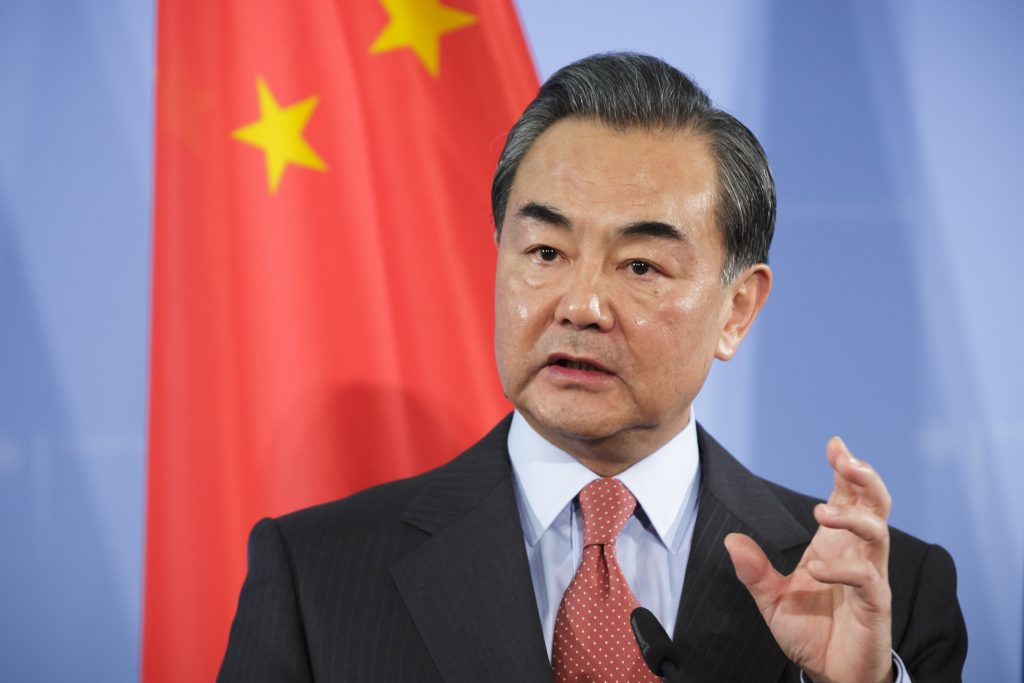The spokesperson of the China Foreign Ministry said that China will firmly reject any attempt by Australia to intervene in Yang Jun, who is charged with espionage by the Chinese government.
The Chinese FM spokesperson said on Thursday that Beijing has lodged stern representations to Australia over interference in China’s judicial sovereignty.
Chinese newspaper People’s Daily wrote on Twitter @PDChina: “China firmly rejects any attempt by Australia to intervene in the case of Yang Jun, who is charged with espionage, and has lodged stern representations to Australia over interference in China’s judicial sovereignty, Chinese FM spokesperson said Thursday.”
Yang Jun, an Australian national who was detained in China on national security grounds was charged and will face trial by next week amid tensions between Canberra and Beijing.
Chinese-Australian author and democracy advocate Yang Jun, whose pen name is Yang Hengjun, was detained in January 2019 shortly after making a rare return to China from the United States.
Chinese Foreign Ministry said then that Yang Jun was suspected of endangering “China’s national security” hence charging him with espionage allegations.

Later in July 2019, Yang’s lawyer, Mo Shaoping said his client’s family received a notice from Beijing saying that Yang Hengjun was suspected of endangering state security.
Yang was later moved into “criminal detention”, indicating that his case is heading towards prosecution – though that is still “far away”, Mo Shaoping said then.
Previously, the Australian writer was held under “residential surveillance at a designated location” (RSDL), a form of detention that allows the authorities to hold people for serious crimes, such as endangering national security.
“The intensity of criminal detention is greater than RSDL,” Mo had explained.
“Australia continues to have consular access and have again asked that he be granted immediate access to his lawyers,” the spokesman said.
“What I can tell you is that the Chinese state security organs handle this case strictly according to law, and fully protect Yang Jun’s legal rights,” Lu said at a regular press briefing.
Yang’s detention comes amid heightened tensions between Western countries and an increasingly muscular Beijing.
Australia has traditionally been keen to avoid friction with its biggest trading partner, but tensions have escalated over security concerns and Beijing’s growing presence in the Pacific.
Australia banned Huawei from participating in its 5G network in August 2018 over security fears.
Canberra has demanded that Yang be treated “fairly and transparently” and had complained about being notified only four days after his initial detention in 2019, instead of three days as required.
Yang Jun is one of two high-profile Australians detained in China on spying allegations amid escalating tensions between Canberra and Beijing.
Australian Foreign Minister, Marise Payne @MarisePayne confirmed that Yang Jun will go on trial in China on espionage charges by next week, after spending more than two years in detention.
“Despite repeated requests by Australian officials, Chinese authorities have not provided any explanation or evidence for the charges facing Dr Yang,” Payne said.
“We have conveyed to Chinese authorities, in clear terms, the concerns we have about Dr Yang’s treatment and the lack of procedural fairness in how his case has been managed.”
Payne also called for Australian officials to be granted access to the trial, criticising a process that she said had so far been “closed and opaque”.
But the Chinese embassy in Canberra labelled Payne’s comments “deplorable” and said Yang’s rights were being respected.
“The Australian side should respect China’s judicial sovereignty and refrain from interfering in any form in Chinese judicial authorities’ lawful handling of the case,” an embassy spokesperson said in a statement.
Yang, who denies the charges, was arrested on a rare return to China from his home in the United States in January 2019.
Another Australian, TV anchor Cheng Lei has been held since August accused of “supplying state secrets overseas”.
Diplomatic relations between the two countries have plummeted since Canberra called for an independent probe into the origins of the coronavirus pandemic and banned telecoms giant Huawei from building Australia’s 5G network.
China has already imposed tariffs or disrupted more than a dozen key industries, including wine, barley and coal, decimating exports.
In September, two Australian journalists were rushed out of China after police sought to question them. Beijing has accused Canberra of raiding the homes of Chinese state media journalists as Australia investigates an alleged campaign of covert influence.